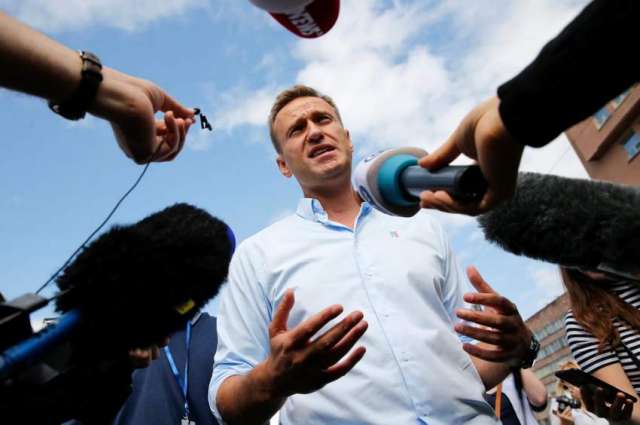Sweden's vouching for that Russian opposition figure Alexey Navalny had been poisoned with Novichok following its earlier claim of never having dealt with this toxin before is potentially violating the Chemical Weapons Convention, Russian Foreign Minister Sergey Lavrov told Sputnik on Friday
MOSCOW (Pakistan Point News / Sputnik - 18th September, 2020) Sweden's vouching for that Russian opposition figure Alexey Navalny had been poisoned with Novichok following its earlier claim of never having dealt with this toxin before is potentially violating the Chemical Weapons Convention, Russian Foreign Minister Sergey Lavrov told Sputnik on Friday.
Sweden denied having any experience with Novichok after Russia retrieved open sources showing that this military-grade nerve agent was being developed in several Western countries in Europe and beyond. This took place in 2018 after the EU and several of its individual member states accused Moscow of being behind the poisoning of ex-Russian spy Sergei Skripal and his daughter Yulia in the UK town of Salisbury.
"There are dozens of patents for the military use of substances of this group. We listed Sweden among the countries where such works were being carried out. As you now know, they told us two years ago 'Don't you dare mention us on this list as we have never carried out any Novichok-related activities,'" Lavrov said.
Germany, where Navalny was transported for treatment last month and where doctors suggested he could have been poisoned with Novichok, asked France and Sweden to confirm the results of his lab tests.
"And they [Sweden] came up with an official confirmation of the results of the Bundeswehr lab that it was Novichok. But if mere two years ago Sweden had no expertise to determine whether or not it was Novichok and now two years later it has such expertise then something must have changed. And if what changed has enabled Sweden to acquire competency in detecting the Novichok substances, perhaps, it should be reviewed as a potential grave violation of the Chemical Weapons Convention," Lavrov added.
On August 20, Navalny was urgently hospitalized in the Russian Siberian city of Omsk after suffering an acute health condition during a domestic flight. As lab tests found no traces of poisonous substances in the man's system, Russian doctors opined the deterioration could have been caused by an abrupt drop of glucose in his blood due to metabolic disbalance.
Navalny was transported to Germany's Berlin-based Charite clinic two days later. It was not until September 2 that German medics claimed Navalny's samples contained traces of a Novichok group substance.
The German government claimed it got a confirmation of the diagnosis from France and Sweden and submitted the case materials to the Organisation for the Prohibition of Chemical Weapons (OPCW). Berlin refused to make the materials available to Moscow, citing Russia's membership in the organization, despite the requests from Russian investigators, who launched a probe immediately after Navalny's hospitalization in Omsk.
On September 7, Navalny was reanimated from his medically-induced coma and separated from a ventilator.




